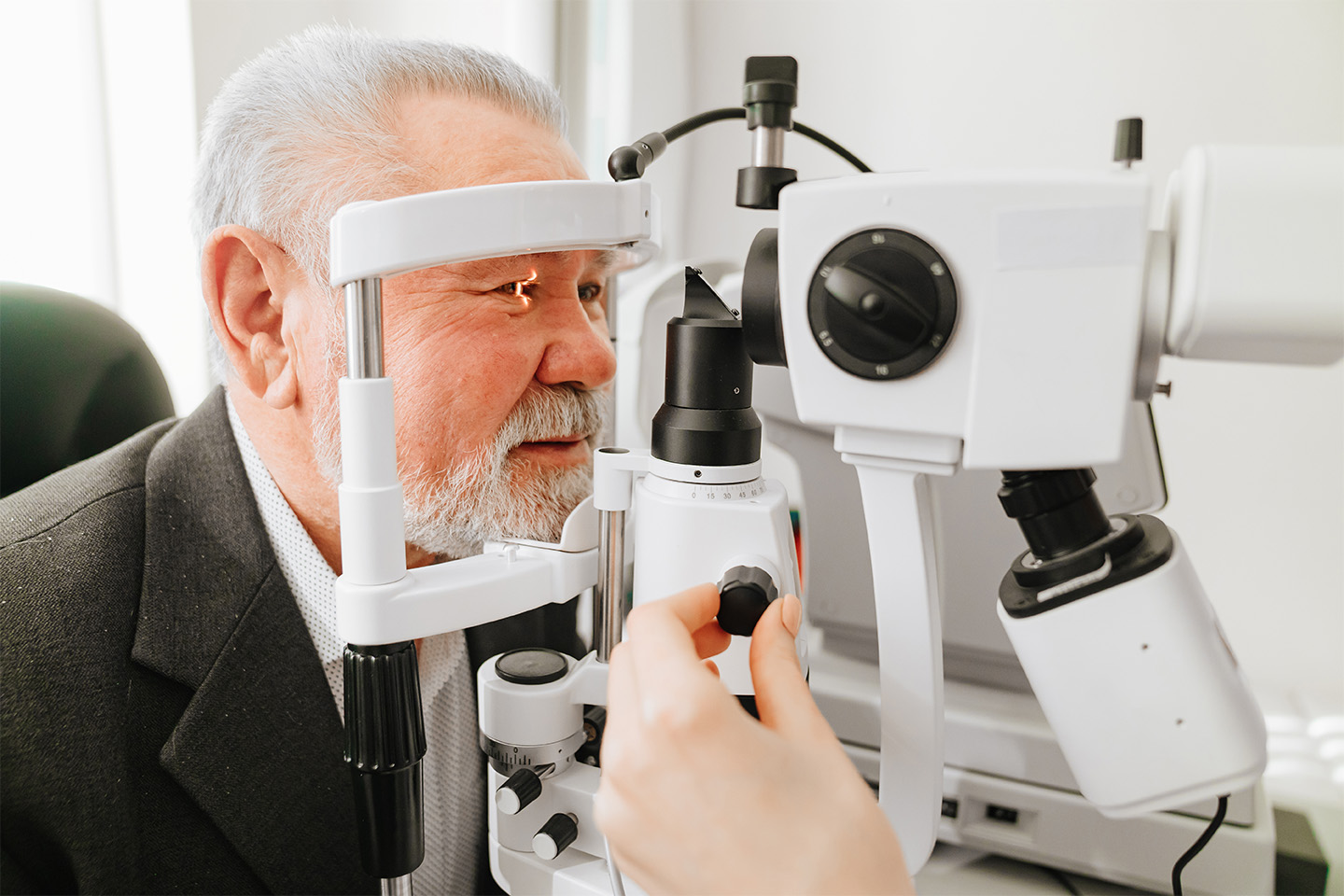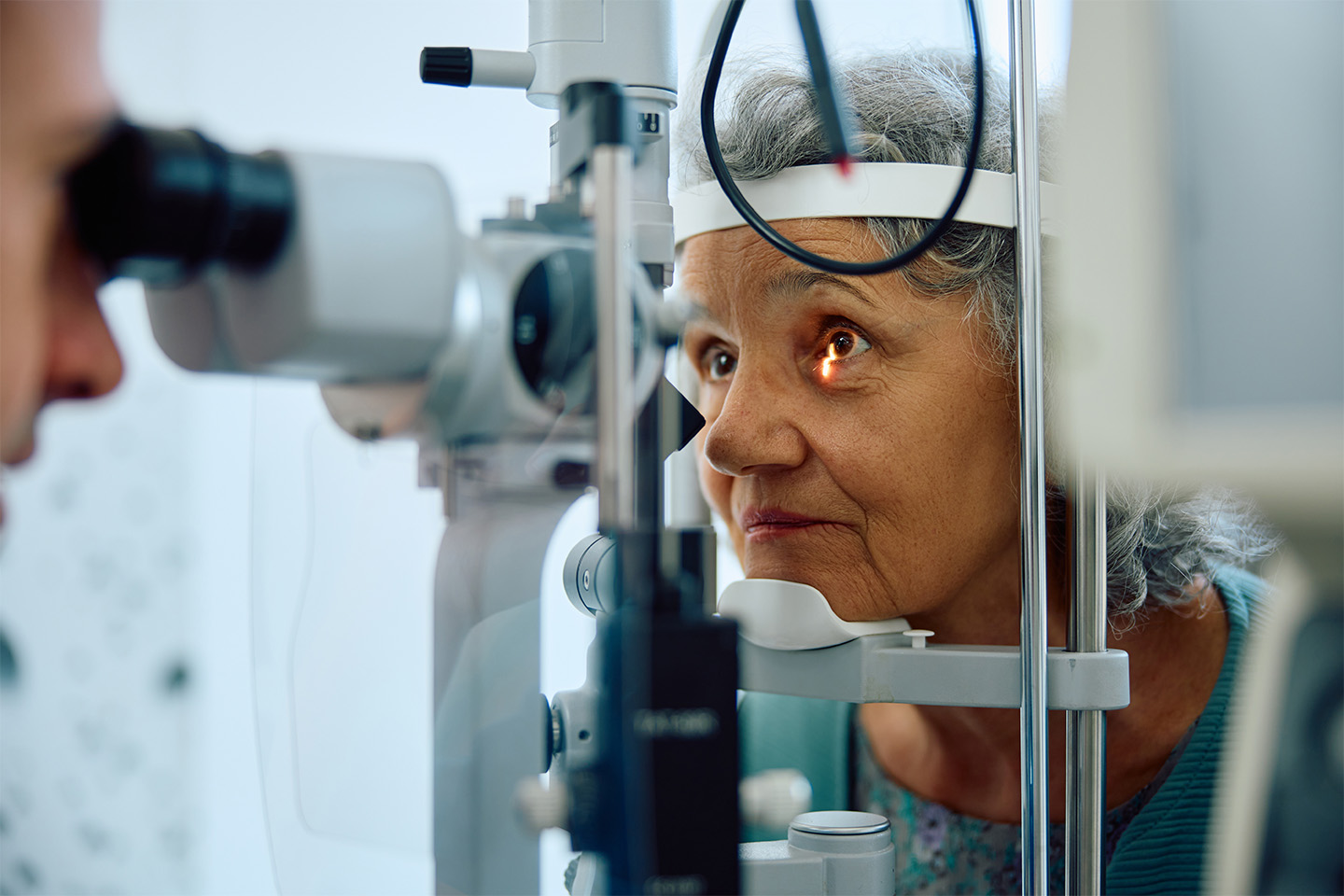Cataract Awareness Month

August is Cataract Awareness Month, a great time to discuss the facts of cataracts, dispel a few rumors, and review the benefits of early cataract screening and your options for cataract surgery.
What exactly is a cataract?
A cataract is a clouding of the natural lens of your eye. It causes blurred, dull vision, similar to looking through a dirty glass. Left untreated, a cataract can lead to more severe vision impairment over time.
Here’s an interesting fact that surprises many patients – if you live long enough, you will develop cataracts. This is because most cataracts occur as a natural symptom of aging. While researchers don’t know the exact causes of cataracts, data supports the correlation between aging and cataract development. More than 20 million Americans over the age of 40 have cataracts. Of the over-80 population, more than HALF have cataracts.
If you plan to live a long, healthy life, you should also plan on cataracts. But don’t be discouraged! With so many advanced technologies available for cataract treatment at Kleiman|Evangelista Eye Center, life after cataracts is a welcome prospect for our cataract patients.
How are today’s cataracts treated?
This is a great question, and the answer may surprise you. Cataracts are not treated in the traditional sense of ‘treating’ an ailment. Once a cataract has developed, the lens of your eye cannot be “cleared up” by treatment or drops. Rather, a cataract procedure is required to actually remove the affected lens and replace it with a clear artificial lens. This may sound rather unique, but in fact cataract surgery is one of the most common and successful procedures performed in America today. More than 3 million patients have cataract surgery every year!
What surgical options are there?
Modern cataract surgery has evolved into a procedure that many of our patients describe as “life-changing” and “miraculous.” This is due to the advent of two types of technology – 1. The multifocal intraocular implantable lens, or IOL, and 2. The LenSx Cataract Laser.
Multifocal IOLs – Restoring a Range of Vision
Until a decade ago, when we performed cataract surgery for a patient, we implanted a monofocal lens to replace the affected cataract lens. While this lens provides clear vision, it does not allow the patient a range of focus. This meant the patient had to use readers, bifocals or even trifocals to focus appropriately at different distances.
With the development of multifocal IOLs, we are able to help patients mimic the natural lens of the eye and focus on objects at varying distances.
Perhaps you’ve heard of some of these lenses – the Crystalens, the ReSTOR lens and the Tecnis lens. At Kleiman|Evangelista Eye Center, we offer all three of these advanced technologies, known here as our LifeStyle Lens Procedures. Depending on a patient’s daily tasks, hobbies and lifestyles as well as unique vision needs, we will recommend the type of lens that’s most appropriate for that patient’s vision.
We could talk a great deal further about LifeStyle Lenses, but I’d like to invite you to our website to learn more at your leisure.
Now let’s discuss the latest advance in cataract surgery, the LenSx Cataract Laser.
LenSx Cataract Laser – The First Laser Cleared by the FDA for Cataract Surgery
In the fall of 2010, the FDA cleared the LenSx Cataract Laser. This laser is the first laser technology we are able to incorporate into cataract surgery. In fact, Kleiman|Evangelista Eye Center was among the first 50 practices in the country to take receipt of the laser.
In the opinion of our surgical team, the LenSx Cataract Laser allows for enhanced computer control during the initial steps of the LifeStyle Lens Procedure, which our doctors believe increases the overall accuracy and subsequent outcome.
When combined with one of our LifeStyle Lens Procedure options, the LenSx Cataract Laser provides another layer of customization during the cataract procedure.
These treatments sound great, but how do I know if I have cataracts?
At Kleiman|Evangelista Eye Center we recommend a cataract screening during the annual eye exam for anyone over the age of 40. I invite you to participate in Cataract Awareness Month with a cataract screening at our Plano office or Arlington center.
You can call us to schedule, or simply visit our online web form for your appointment. Our team looks forward to seeing you!
– Dr. E
Turn To The Top Eye Doctors In Texas
Check out one of our locations below for the best eye care near you:









